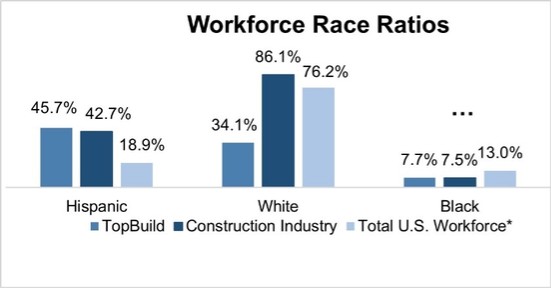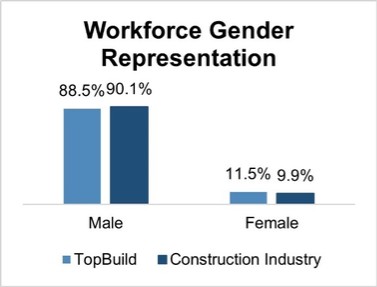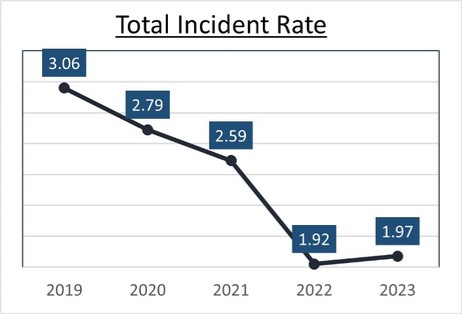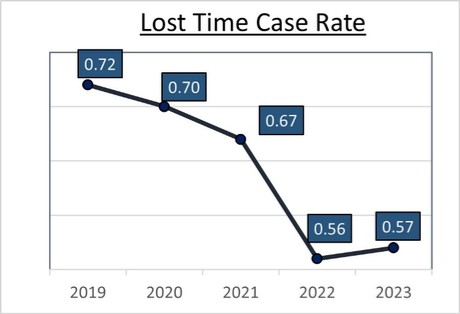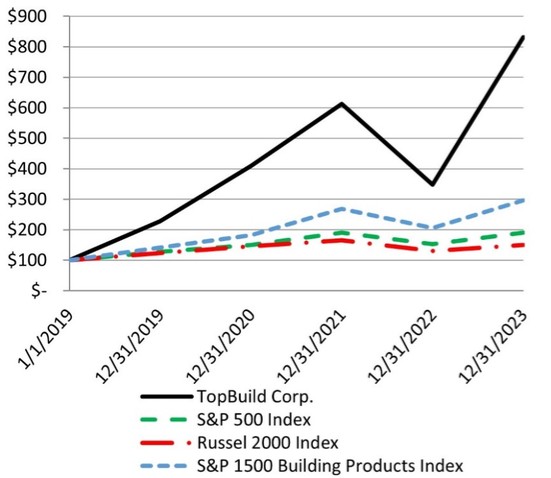We operate primarily in North America, but also supply projects in other parts of the world and have suppliers and customers that have operations outside of North America. Our business is subject to risks arising from economic, political, and social conditions and events in any of these regions, such as recessions, inflation, deflation, currency fluctuations, trade disputes, wars, terrorist attacks, pandemics, natural disasters, and other crises. These conditions and events may affect the demand for our services and products, the availability and cost of materials and labor, the financial condition and creditworthiness of our customers and suppliers, the stability and regulation of financial markets, the ability to raise capital, the enforcement of contractual obligations, the protection of intellectual property rights, and the conduct of business operations. Any of these factors could have a material adverse effect on our business, results of operations, and financial condition.
Risks Relating to Human Capital
The long-term performance of our businesses relies on our ability to attract, develop, and retain talented personnel, including sales representatives, branch managers, installers, and truck drivers, while controlling our labor costs.
We are highly dependent on the skills and experience of our senior management team and other skilled and experienced personnel. The failure to attract and retain key employees could negatively affect our competitive position and operating results.
Our business results also depend upon our branch managers and sales personnel, including those of businesses acquired. Our ability to control labor costs and attract qualified labor is subject to numerous external factors including prevailing wage rates, the labor market, the demand environment, the impact of legislation or regulations governing wages and hours, labor relations, immigration, healthcare benefits, and insurance costs. In addition, we compete with other companies to recruit and retain qualified installers and truck drivers in a tight labor market, and we invest significant resources in training and motivating them to maintain a high level of job satisfaction. These positions generally have high turnover rates, which can lead to increased training and retention costs. If we fail to attract qualified labor on favorable terms, we may not be able to meet the demand of our customers, which could adversely impact our business, financial condition, and results of operations.
Changes in employment and immigration laws and regulations may adversely affect our business.
Various federal and state labor laws and regulations govern the relationship with our employees and impact operating costs. These laws include, but are not limited to, employee classification as exempt or non-exempt for overtime and other purposes; workers’ compensation rates; immigration status; mandatory health benefits; tax reporting; and other wage and benefit requirements. We have significant exposure to changes in laws governing our relationships with our employees, including wage and hour laws and regulations, fair labor standards, minimum wage requirements, overtime pay, unemployment tax rates, workers’ compensation rates, citizenship requirements, payroll taxes, and the enforcement of non-competition agreements, as well as vaccination and testing mandates which may be imposed in connection with the occurrence of pandemic or health concerns, which changes would have a direct impact on our operating costs. Significant additional government-imposed increases in the preceding areas could have a material adverse effect on our business, financial condition, and results of operations.
In addition, various states in which we operate are considering or have already adopted new immigration laws or enforcement programs, and the U.S. Congress and Department of Homeland Security from time to time consider and implement changes to federal immigration laws, regulations, or enforcement programs. These changes may increase our compliance and oversight obligations, which could subject us to additional costs and make our hiring process more cumbersome, or reduce the availability of potential employees. Although we verify the employment eligibility status of all our employees, including through participation in the “E-Verify” program where required, some of our employees may, without our knowledge, be unauthorized workers. Use of the verification tools and/or “E-Verify” program does not guarantee that we will properly identify all applicants who are ineligible for employment. Unauthorized workers are subject to deportation and may subject us to fines or penalties and, if any of our workers are found to be unauthorized, we could experience adverse publicity that negatively impacts our brand and may make it more difficult to hire and retain qualified employees, which could disrupt our operations. We could also become subject to fines, penalties, and other costs related to claims that we did not fully comply with all recordkeeping obligations of federal and state immigration laws. These factors could have a material adverse effect on our business, financial condition, and results of operations.
